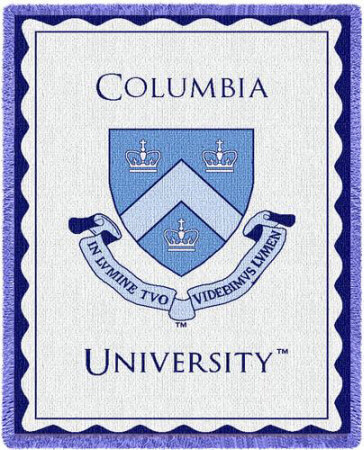
This post was updated in May 2018 to reflect the latest information.
Many universities boast a number of notable alumni, but few universities hold a candle to Yale University’s impressive and wide-ranging list of former students. If you were to somehow manage to get them in a room for a party, you’d be rubbing elbows with presidents, senators, authors, economists, and certainly a famous actor or two. But what does that mean for you, not-quite-yet-notable grad school applicant? Well, it means that you’ve got your work cut out for you if you want to join the elite alums of Yale. And one of the key factors in deciding your fate is naturally going to be the GRE. So what scores will you need?
Average GRE scores for Yale – Engineering
Here’s the US News & World Report data on the engineering program at Yale:
| Program | Average Verbal | Average Quantitative |
|---|---|---|
| Engineering – Master’s | 155* | 167 |
| Engineering – PhD | 157* | 167 |
*US News & World Report has not provided updated information for these scores; however, we have included these as the last listed scores for this program.
The Verbal Scores are in the 68th and 75th percentiles and the Quantitative are in the 93rd and 97th.
Estimating Yale GRE scores in other disciplines
Below is an estimated range of scores you could expect from Yale’s ranked programs. For more on the methodology behind the numbers, see Methodology. 🙂
| Program | US News Rank | Estimated Verbal Range | Estimated Quantitative Range |
|---|---|---|---|
| Biological Sciences | 6 | 158-162 | 160-164 |
| Chemistry | 11 | 155-159 | 159-163 |
| Computer Science | 20 | 153-157 | 164-168 |
| Earth Sciences | 14 | 156-160 | 156-160 |
| Economics | 4 | 160-164 | 169-170 |
| English | 1 | 162-166 | 157-161 |
| Fine Arts | 2 | 162-166 | 159-163 |
| History | 2 | 161-165 | 156-160 |
| Mathematics | 8 | 159-163 | 170 |
| Physics | 9 | 161-165 | 168-170 |
| Political Science | 6 | 162-166 | 161-165 |
| Psychology | 6 | 157-161 | 156-160 |
| Sociology | 18 | 156-160 | 153-157 |
Resources to get the GRE scores you’ll need
Check out the following links for more help preparing for the GRE:
Methodology
Using the limited score data in the US News & World Report’s release on graduate schools (for engineering and education), I created a block scale that assumes a standard difference between the ETS’s average of intended applicants of a specific major and the rank block (ie Ranks 1-10, 11-50, 51-100). Next I added the expected difference to the average score of the intended major and spread 2 points on either side of that to create a nice range. It would look like this:
| Program | Rank | Rank block | Intended Score | Exp Difference | Range |
|---|---|---|---|---|---|
| English | 4 | #1-10 | 157 | 7 points | 162-166 |
Of course, you could argue that this isn’t perfect, and I’d have to agree. This is just intended to give you a general idea of what you should be aiming for. 🙂






Comments
21 responses to “Yale GRE Scores”
Hi Chris,
I must say you people are doing a great work. Thanks for helping and keep it up.
My credentials are:
Applying for MS in Computer Science
GRE – 318 (v153 q165 AWA 3.0 )
Toefl- 100
Under grad- 3.252 / 4
What do you suggest, can I get into yale?
Thanks.
Hi Jatin!
Thank you! 🙂 We love hearing that students are benefitting from our work!
I think you definitely have a shot at getting into Yale! Your scores are within the range that Yale is looking for for this program.
Remember that admissions committees will be looking at your scores, GPA, experience, essays, and previous work – and comparing you to other applicants in your class. So, I recommend putting a lot of effort into your application and giving it a shot!
Good luck!
Rita
Hi Chris. This is Vandana. My GRE score is 297 (V:150, Q:147)..Really wanted to apply for Phd in Clinical Psychology in Yale. I have a good academic record and have done both post-graduation as well as M.phil in the same subject from India with distinction at each degree. Do u think it is too ambitious to apply here..??..Will my qualifications be given weighted over my low GRE score..???
Hey Vandana! I think this kind of question should be directed to the program directly. My intuition tells me that your scores are probably on the low side for a program like Yale, but it’s always difficult to say exactly what the programs weigh as most important. 🙂
Best,
Chris S
Hi Chris
do you think i can get into Yale with the below mentiond profile or is it too ambitious ?
My Profile:
GRE-319(verbal-152,quant-167,AWA-not yet received);
Toefl-98(r-28,l-23,s-22,w-25)
B-Tech(Computer Science)–Aggregate-79.2%(No backlogs)
Intended MS in Computer Science
Thanks,
Regards,
tajinder
Hey Tajinder! Your profile seems pretty good. Unfortunately it’s quite difficult to say one way or another how the adcoms would decide. I’d try reaching out to them and seeing what they have to say!
Best,
Chris S
Hello Chris,
A word of thanks to you and your staff, you have made the GRE process as painless for an overachiever as it could be. I received a 163V and 159Q. I am interested in their political science program. Do you think that being on the upper bound in Quant would offset the lower Verbal?
Also, do you have an idea on Univ. of Chicago in respect to GRE scores?
Thanks so much!
Hey Connor! I have a feeling that a high verbal might offset a low quant of political science, but not necessarily the other way around. That being said, remember scores are only a piece of the puzzle. Make sure you have everything else in place. As for Chicago, I’d check their rankings and have a look at that my post on GRE Scores for Social Sciences. 🙂
Best,
Chris S
Hi Chris,
I want to do Masters in MIS, how much score i have to get in gre to get into Yale, i have 2+ years of Software operations experience.
Please reply soon!!!
Thanks,
Prathyu
Hey Prathyu! Just pick the program closest to the one you want to apply to and use that as a general guideline. Remember there’s a lot more than just GRE scores going into the admissions decision. 🙂
Best,
Chris S
I just took the gre and did OK scoring 162 Verbal and 154 Quant. However, I am really hoping to get into a top 20 English PHD program and not sure my verbal scores will be good enough. Should I consider taking the GRE again and can Magoosh help raise my score to the 165-166 range?
Hey Frank! I’d definitely say that you can get to at least the mid-160s with Magoosh, and maybe bring up that quant score, too! That being said, moving up points on the high end of the score range (160+) is no walk in the park. It’ll take a lot of work on your end to get there. 🙂 Let me know if you have any questions when you’re deciding!
Best,
Chris S
Hi Chris, Thank you for the useful post. I|m thinking about applying to Yale to do my PhD in history there. Just received my results, While my quant and verbal comps were quite good (158 and 166 respecitively), I’m worried about the bloody writing part, where I got 4.5. You don’t include that part in your (immensely useful) comparison. How important is the writing section and is my score any good?
Thank you.
Beata
Hey Beata! Unfortunately it’s pretty difficult to say as how schools assess the writing portion varies wildly. I’d check with the history department directly to see if they can shed some light!
Best,
Chris S
Hi Chris,
I appreciate you giving out these scores. Today, I just finished my GRE, the estimates are:
Verbal 159 / Quantitative 168
I felt I did pretty good for writing too (about 4.5-5? The issue task topic was the exactly same as one of the essays I practiced)
I studied about 3 weeks for this test while doing job searching, and might have gotten a little lucky. For the next step, I want to raise my verbal score to about 163-165. Is this achievable? How long do you think that will take with Magoosh’s program?
I’m trying to get in for Stanford’s Master of Science (Electrical Engineering). (not sure how much is good)
Any advice would be appreciated.
Thank you so much,
Randy
Hey Randy!
Taking the GRE again might be overkill since your quant is so high. I looked up the verbal scores on US News and it looks like the engineering program at Stanford averages a 160 in verbal. Honestly if you feel like you got lucky, then I’m not sure it’s a good idea to retake it and potentially lower your score. That being said, I think Magoosh could take you to the next level, as long as your dedicated to a study plan. I’d say about one month would suffice, but maybe a little more if you feel you got really luck. 😉
Chris
Hi Chris,
Thank you so much for the reply.
I just signed up for Magoosh and found those videos really helpful. I’ll be trying my best to gun for that 165 in verbal.
I took a look at the plans you mentioned. Do you think I’d be better off following 90-day study plan for advanced students, or the 90-day plan with a verbal focus?
Also, I’m currently under the impression that I should spend most of my time expanding my vocabulary. Am I on the right track? Are there specific short-cuts and tricks that can help me expand my vocabulary. (Right now I’m doing a bit of word roots and studying Kaplan word groups in addition to studying vocabulary straight up)
Thank you so much for your help.
Sincerely,
Randy
Hey again!
Glad to hear you’ve signed up! If you have any questions in the future, feel free to use the “Help” tab at gre.magoosh.com. Anyway, I say definitely go with the verbal focus 90 day plan. Since you have a good grasp of quant, you can proceed at your own pace on that side.
As for what you should be doing, expanding your vocab is great (especially in context), but there are a lot of other strategies you can employ to improve your verbal score, and you’ll find those in the study schedules. Definitely follow along with the schedule, and keep up with your vocabulary studies on the side.
Best,
Chris
Hello Chris,
Thank you so much,I would wait for the updates on Columbia School.
Hi Chris,
I really appreciate your detail notes on the boundary score for GRE, for Yale and others universities that you have been doing for the last couple of months as i noticed.indeed, it is the great source of motivation and helping to fix the target.I am targeting Columbia University for PhD in economics. Luckily, my Master Research has been acknowledged by the one of the prof in Econ Dept.How much score in GRE would help me to secure my admission there.would you mind putting the detail notes on Columbia University?
Hey Shafi! Glad you found the posts informative. 🙂 Remember that no specific score will guarantee admittance, but I’d say having a connection with a professor is a great start! I’ll have a revamped version of the Columbia schools post within a couple weeks, so be on the look out!
Chris